![]()
"In the last days, God says, 'I will pour out my Spirit upon all people. Your sons and daughters will prophesy. Your young men will see visions, and your old men will dream dreams.” Acts 2:17
"Special personalities from Montreal, Canada will give evidence to confirm my Incarnation. You don't have to worry about that for now, but it will happen. You will hear about them later.”
The Paraclete Shri Mataji, Sydney Airport, Australia—April, 1994
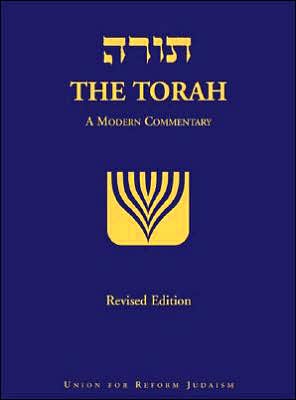
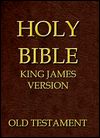
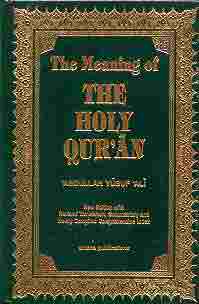

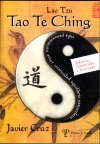
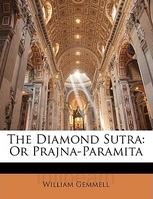
"Now, the principle of Mother is in every,
every scripture - has to be there!"Shri Mataji
"Apocalypse ... is a narrative form of a
revelation given to humans from a non-human
source. It reveals a truth about the past,
present or future, but most common use is in
terms of the future... A parousia is the coming
or arrival of an important figure of history...
Because the Kingdom of God is so closely
linked to eschatology in the Bible, there is a
series of terms that are used to describe the
way in which the Kingdom could possibly fit
into the end times and parousia.”
www.2pi.info/ (August 22, 2012)
Jesus said: "Whoever blasphemes against
the Father will be forgiven, and whoever
blasphemes against the Son will be forgiven,
but whoever blasphemes against the Holy
Spirit will not be forgiven either on earth or
in heaven.” The Gospel of Thomas Logion 44
"Although one of the Johannine Paraclete
passages, 16:7-11, draws on the forensic
background of the term parakletos, the other
passages suggest broader, more personal
senses, referring to one who consoles another,
befriends another, guides or teaches another,
or to one who publicizes the truth of things.
Translators have tried many equivalents for the
Evangelist's term: Advocate (the choice of the
NRSV), Comforter, Convincer, Counselor,
Encourager, Friend, Helper, Teacher. Some
have simply transliterated: 'Paraclete.' John
Reumann judges that 'No one English word
catches all the nuances in the Paraclete
passages.'" (Stevick 2011, 285)
"According to the Gospel of Thomas, then, the
kingdom of God symbolizes a state of
transformed consciousness. One enters that
kingdom when one attains self-knowledge.
The Gospel of Thomas teaches that when one
comes to know oneself, at the deepest level,
one simultaneously comes to know God as
the source of one's being.” (Pagels 1996, 71)
"'For my mother [...], but my true Mother gave
me Aeonic [Eternal] Life.' Filling in the lacuna,
it probably said something like, 'For my
[human] mother gave me birth in flesh, but my
true Mother gave me the Life [of the Aeon].'"
(Keizer 2010, 278)
.”.. in 14.26, Jesus equates the Paraclete with
the Holy Spirit and mentions for the first time
that the Paraclete will teach, reminding his
followers of all that he has said to them. The
Spirit answers the concern of the disciples.”
(Stevick 2011, 288)
“But to communicate with the people, to
communicate with the Spirit, to understand the
Kundalini, the vibrations, and their different
decodings and all that the Holy Spirit had to
come, with Her mouth, and with Her voice,
and with Her intelligence.”The Paraclete Shri
Mataji, Sydney, Australia—April 7, 1981
"How truthful are we about seeking?” July 79
The baptism of realizing The Mother/Paraclete
as the source of life eternal also begins here.
Since November 1993 the transcendental experiences of children's souls, each meeting the Holy Spirit hundreds of times in the Kingdom of God within* over the years, have been recorded. They have identified Shri Mataji Nirmala Devi to be Her incarnation, sent to deliver the message and means to participate in the promised Resurrection and evolution into the eternal spirit. every scripture - has to be there!"Shri Mataji
"Apocalypse ... is a narrative form of a
revelation given to humans from a non-human
source. It reveals a truth about the past,
present or future, but most common use is in
terms of the future... A parousia is the coming
or arrival of an important figure of history...
Because the Kingdom of God is so closely
linked to eschatology in the Bible, there is a
series of terms that are used to describe the
way in which the Kingdom could possibly fit
into the end times and parousia.”
www.2pi.info/ (August 22, 2012)
Jesus said: "Whoever blasphemes against
the Father will be forgiven, and whoever
blasphemes against the Son will be forgiven,
but whoever blasphemes against the Holy
Spirit will not be forgiven either on earth or
in heaven.” The Gospel of Thomas Logion 44
"Although one of the Johannine Paraclete
passages, 16:7-11, draws on the forensic
background of the term parakletos, the other
passages suggest broader, more personal
senses, referring to one who consoles another,
befriends another, guides or teaches another,
or to one who publicizes the truth of things.
Translators have tried many equivalents for the
Evangelist's term: Advocate (the choice of the
NRSV), Comforter, Convincer, Counselor,
Encourager, Friend, Helper, Teacher. Some
have simply transliterated: 'Paraclete.' John
Reumann judges that 'No one English word
catches all the nuances in the Paraclete
passages.'" (Stevick 2011, 285)
"According to the Gospel of Thomas, then, the
kingdom of God symbolizes a state of
transformed consciousness. One enters that
kingdom when one attains self-knowledge.
The Gospel of Thomas teaches that when one
comes to know oneself, at the deepest level,
one simultaneously comes to know God as
the source of one's being.” (Pagels 1996, 71)
"'For my mother [...], but my true Mother gave
me Aeonic [Eternal] Life.' Filling in the lacuna,
it probably said something like, 'For my
[human] mother gave me birth in flesh, but my
true Mother gave me the Life [of the Aeon].'"
(Keizer 2010, 278)
.”.. in 14.26, Jesus equates the Paraclete with
the Holy Spirit and mentions for the first time
that the Paraclete will teach, reminding his
followers of all that he has said to them. The
Spirit answers the concern of the disciples.”
(Stevick 2011, 288)
“But to communicate with the people, to
communicate with the Spirit, to understand the
Kundalini, the vibrations, and their different
decodings and all that the Holy Spirit had to
come, with Her mouth, and with Her voice,
and with Her intelligence.”The Paraclete Shri
Mataji, Sydney, Australia—April 7, 1981
"How truthful are we about seeking?” July 79
The baptism of realizing The Mother/Paraclete
as the source of life eternal also begins here.
Shri Mataji, as the pledged Paraclete, has openly and repeatedly proclaimed the world over the Good News (Al Naba) of the Kingdom of the Spirit since the 1970's. (She passed away peacefully February 23, 2011 in Genoa, Italy at the age of 87.)
Only in this age of mass media and literacy is its universality possible, and comprehensible. The common eschatology of the deeply-divisive faiths of Judaism, Christianity and Islam have been harmoniously declared, explained in detail, concluded, and set in motion by the Spirit-Paraclete.
As Her incarnation, Shri Mataji calls upon humanity to cross-examine evidence of the Holy Spirit's promise and pledge of evolution into life eternal. The Spirit-Paraclete reveals the apocalypse and eschatology that completes and brings closure to Jesus' unfinished teachings:
"Ehrman's is a historical-Jesus book ... He believes that apocalypticism is the true core of Jesus' message, and that comfortable middle-class complacency among scholars, clergy, and laypeople has forged a counterfeit, domesticated, 'ethical' Jesus to cover up their befuddlement about his misprediction of the apocalypse.”- Michael Joseph Gross (Hardcover jacket of Ehrman's Jesus: Apocalyptic Prophet of the New Millennium)
"Jesus has far too mordant an understanding of ruthlessness and corruption ... that keeps the world sunk in degradation. Not only does Jesus know this, but he faces its necessity and lives it out in the extremity of his own life; he is fully aware that his knowledge of the laws of the birth of the Kingdom threatened all previous human accommodations to the way of the world; after his very first public sermon, the Gospel of Matthew tells us, occasional attempts on his life were made. Unlike many of the gurus and so-called teachers of our time, whose vague transcendental waffling further drugs an already comatose culture and leaves every aspect of the status quo intact, Jesus' vision of the new way was rooted not only in visionary ecstasy but in an utterly illusionless and ruthless analysis of power in all its aspects. This is what made him—and makes him—dangerous, perpetually scandalous, and what makes the Gospel of Thomas a fiery challenge, not only to less incendiary versions of his own message, but to all philosophers who do not propose a complex mystical revolution on every level.
... we see the agency of this transformation in The Motherhood of God, the Divine Feminine. This is quite clear from the image of infants sucking at the breast, through which Jesus is trying to make us aware of how important is the embodied Godhead, The Mother aspect of God, and how important it is to the kind of transformation he wants. Only those who have awoken to the kingdom within and without as the embodied Godhead will be able to view life and Creation and all the workings of the universe with the kind of abandon and trust that will allow them to be fed directly by God, with all the powers of vision and action they need. Without a restoration to the Christian mysticism of Jesus' own full celebration of the Divine Feminine, the 'Kingdom-consciousness' cannot and will not be born.”
Stevan L. Davies, The Gospel of Thomas
Shambhala Library, December 2004, p. xx-xxii
*Kingdom of God within
"Kingdom of God, also called Kingdom Of Heaven, in Christianity, the spiritual realm over which God reigns as king, or the fulfillment on Earth of God's will. The phrase occurs frequently in the New Testament, primarily used by Jesus Christ in the first three Gospels. It is generally considered to be the central theme of Jesus' teaching, but widely differing views have been held about Jesus' teaching on the Kingdom of God and its relation to the developed view of the church.
Though the phrase itself rarely occurs in pre-Christian Jewish literature, the idea of God as king was fundamental to Judaism, and Jewish ideas on the subject undoubtedly underlie, and to some extent determine, the New Testament usage. Behind the Greek word for kingdom (basileia) lies the Aramaic term malkut, which Jesus may have used. Malkut refers primarily not to a geographical area or realm nor to the people inhabiting the realm but, rather, to the activity of the king himself, his exercise of sovereign power. The idea might better be conveyed in English by an expression such as kingship, rule, or sovereignty.
To most Jews of Jesus' time the world seemed so completely alienated from God that nothing would deal with the situation short of direct divine intervention on a cosmic scale. The details were variously conceived, but it was widely expected that God would send a supernatural, or supernaturally endowed, intermediary, whose functions would include a judgment to decide who was worthy to 'inherit the Kingdom,' an expression which emphasizes that the Kingdom was thought of as a divine gift, not a human achievement.
According to the first three Gospels, most of Jesus' miraculous actions are to be understood as prophetic symbols of the coming of the Kingdom, and his teaching was concerned with the right response to the crisis of its coming. The nationalistic tone of much of the Jewish expectation is absent from the teaching of Jesus.
Scholarly opinion is divided on the question as to whether Jesus taught that the Kingdom had actually arrived during his lifetime. Possibly, he recognized in his ministry the signs of its imminence, but he nevertheless looked to the future for its arrival "With power.” He may well have regarded his own death as the providential condition of its full establishment. ... the Kingdom of God, however, would be fully realized only after the end of the world and the accompanying Last Judgment. The Johannine writings in the New Testament played a large part in the transition to this traditional Christian understanding of the Kingdom of God.” (Encyclopedia Britannica Inc., Web. June 5, 2012)
"At the same time, the knowledge Jesus communicates in the gnostic gospels and related texts is a knowledge both of what is outside and of what is inside...
In the Gospel of Thomas Jesus says that the kingdom is inside and outside (3:3), and the inner may be like the outer and the outer like the inner (22:4)...
Another Valentinian gospel, the Gospel of Philip, gives a meditation on the outer and the inner. Based on an utterance of Jesus very much like Gospel of Thomas 22:4, this meditation maintains it is actually more fitting to focus attention upon what is within, what is innermost. The world of the pleroma, the fullness of God, thought by many to be the divine realm above, truly is within. In the words of the Gospel of Philip, 'What is innermost is the fullness, and there is nothing further within' (68). If the fullness is within, so, in the Gospel of Thomas, is the kingdom within, or spread out upon the earth, unseen by people (3:3; 113:4), and so also, in the Gospel of Mary, is the child of humankind (or son of man) within. As Jesus says to the disciples in the Gospel of Mary, 'Follow that. Those who seek will find it'(8).” (Meyer 2009, xxiii-xxiv)
“But those who have got Realization (baptism/kundalini awakening) will enter into the Kingdom of God. You have to enter into the Kingdom of God here, as I say, in the Seventh Chakra.”
The Paraclete Sri Mataji
The New Age Has Started, Houston, USA—October 6, 1981
"Coiled like a snake at the base of the spine, kundalini is the spiritual force that lies dormant in every human being. Once awakened, often through meditation and yoga practices, it rises up the spine and finds expression in the form of spiritual knowledge, mystical vision, psychic powers, and ultimately, enlightenment.” (Gopi Krishna 1997, back cover)
"The New Testament announces the fulfillment of the eschatological hope of the spirit proclaimed by the prophets. Two elements are emphasized: the coming of the one who is the permanent bearer of the spirit and the outpouring of the spirit on 'all flesh'; and both are linked.” (Metzger, Coogan 1993, 203)
"'Paraclete' is the title that most clearly expresses the personal character of the Holy Spirit. Using that title, the author of the hymn takes us a decisive step forward in contemplating the Holy Spirit. If by the term 'Creator' he affirmed that the Spirit was by nature divine, now by the term 'Paraclete' he affirms that the Spirit is also a divine person. The other titles and symbols of the Spirit—water, fire, love, and the very names Spirit—might of themselves at the very most convince us that there is 'something divine' about the Holy Spirit. Paraclete, however, is in itself a personal title: it can be attributed only to a person because it implies both intellect and will.” (Cantalamessa 2003, 69)
"As noted earlier, some of the classical literature of Kundalini describes her as the great goddess. In he Laksmi Tantra, and ancient Pancaratra text (the oldest surviving Visnuite sect in India) there is a dialogue between Laksmi (another name for the goddess Kundalini) and Sakra, a devotee. Sakra did divine penance ... The goddess then appeared and he asked to know the nature of truth. She told him she was Kundalini and all other goddesses as well, and advocated her worship as the Great-Mother Goddess.” (Greenwell 2002, 19)
![]()
Shri Mataji 1983 TV Interview (Houston, USA: Live with questions)
Disclaimer: Our material may be copied, printed and distributed by referring to this site. This site also contains copyrighted material the use of which has not always been specifically authorized by the copyright owner. We are making such material available to our readers under the education and research provisions of "fair use" in an effort to advance freedom of inquiry for a better understanding of religious, spiritual and inter-faith issues. The material on this site is distributed without profit. If you wish to use copyrighted material for purposes other than “fair use” you must request permission from the copyright owner.